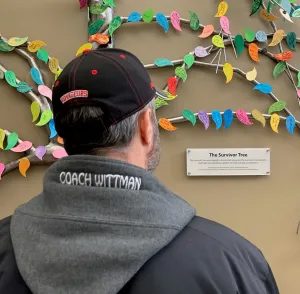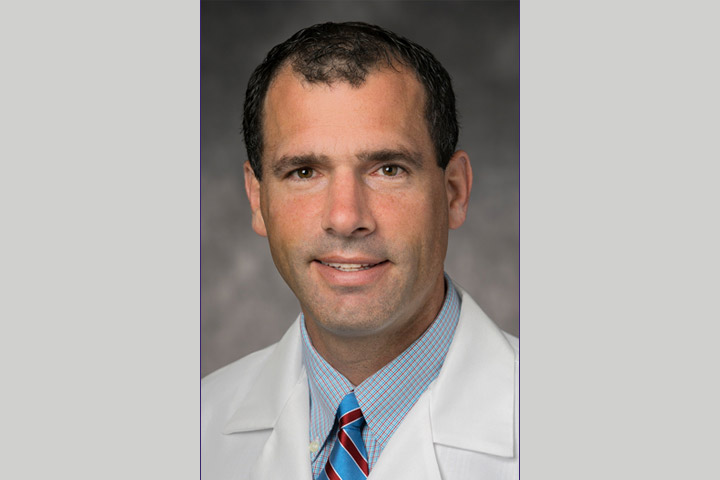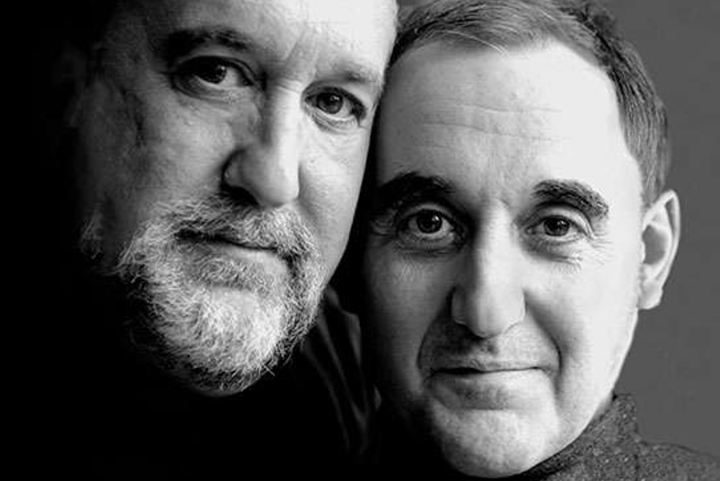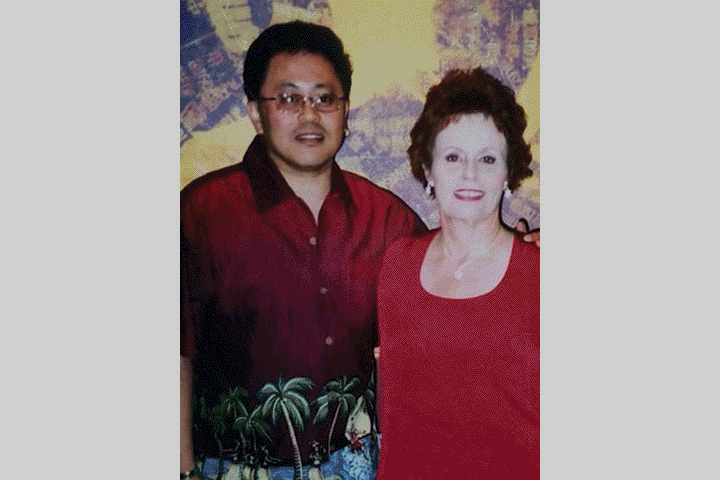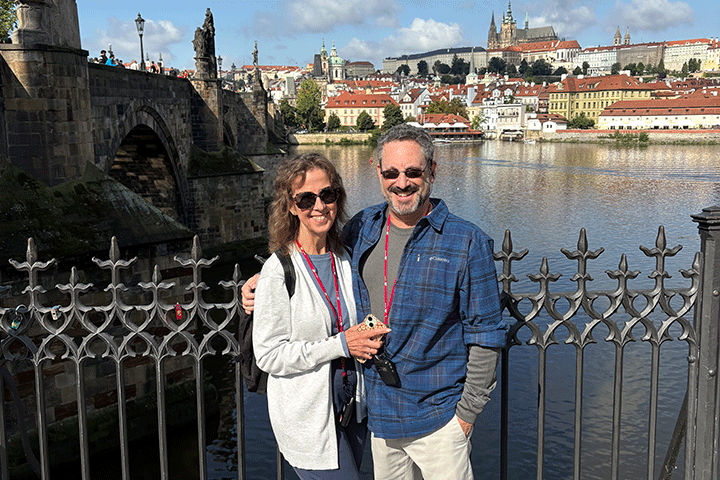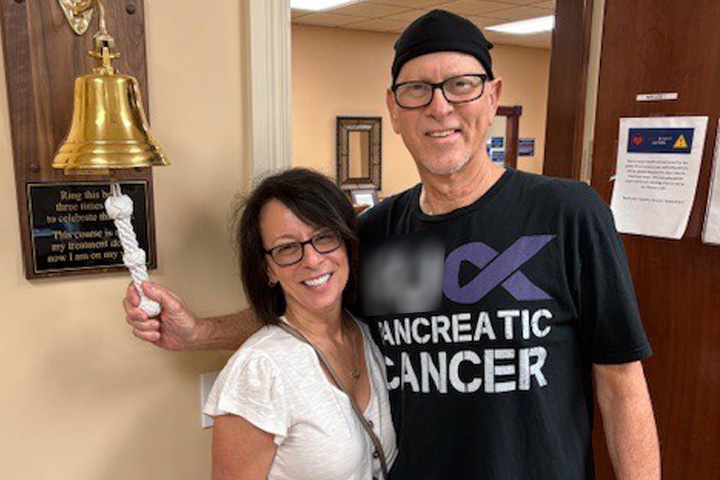A Second Opinion Changes the Pancreatic Cancer Game Plan
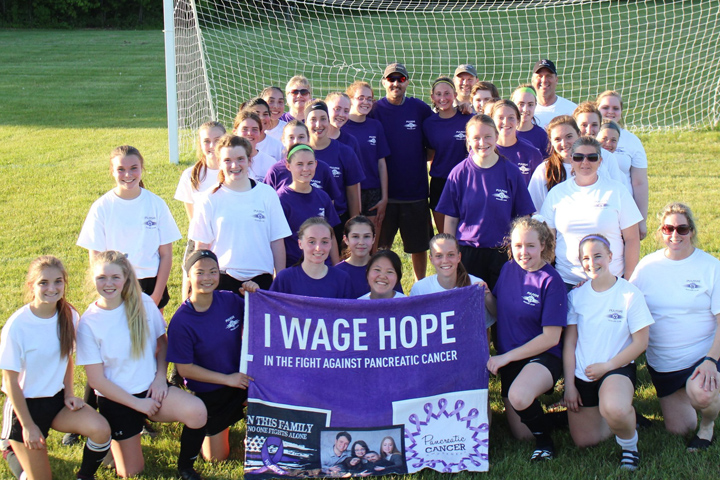
- Jaundice and weight loss lead to diagnosis
- Chemotherapy with 5-FU
- A second opinion leads to a Whipple procedure
It all started in the winter of 2019, when I was halfway through my season coaching a boys’ junior varsity high school hockey team.
I have been a coach almost all my life, teaching local kids about soccer even when I was in high school. But my main love was hockey—I’ve been on the ice since I could walk. My older brother and I traveled as far as Canada and New York playing AAA hockey. Even after I got a steady job, I played semi-pro hockey for eight years. Once I had children, I began coaching them in soccer in the summer and hockey in the winter. Little did I know that all of those other families whose children I had been coaching for years would play a part in “coaching” me as well, when I had something lurking within me, biding its time and waiting to test my faith and will.
That winter I knew something just wasn’t quite right. I wasn’t able to eat as much as I used to, saving half of my foot-long sub sandwich when normally I’d voraciously devour the whole thing. I noticed that I was losing weight without really trying. Since I was just happy to lose the weight I didn’t really think much about it until I noticed my urine turning a coffee color a couple weeks later. My wife immediately flipped out and told me to get to the doctor immediately (no ifs, ands, or buts)!
February 27, 2019 will always be seared in my memory. My GP took one look at me, noted that the whites of my eyes were yellow and I weighed quite a bit less than six months before. He told me to go to the hospital IMMEDIATELY, and not to wait until after work at the end of the day. I called my wife, and told her to meet me there, and thus began our almost year-long Cancer Saga. The results of each test—the CA 19-9, the PET scan, and the biopsy of the tumor—felt like a physical blow.
A Dire Diagnosis
By Friday, March 1, the doctors gave us the diagnosis: I had adenocarcinoma of the pancreas. The doctors explained that they saw spots all over my liver on the PET scan, and thus that meant it was stage IV, and in our minds not a lot of hope for the future. After seeing all the “bad news” about pancreatic cancer online, we started to plan for the end of my life. That is not something most 48-year-olds have to seriously think about, but we trudged through lawyer appointments over the coming weeks to make a will, as well as all the invariable paperwork the hospitals need for end-of-life decisions, and finally got some current family photos done.
What followed over the next eight months was MANY hospital stays, six months of 5-FU chemotherapy, lots of pain, nausea, and despair. We named the tumor the “Dirty Rotten Rat Bastard” and spoke of it often during that year as if it was a sentient being that we were fighting. I had two bouts of blood infections, untold varieties of medications, an exterior biliary drain for several months, several biopsies to get a sample of the cancer off my liver, and several insertions of stents to help my bile flow correctly past the “DRRB tumor” on my pancreas.
My wife created a CaringBridge page the same weekend we got the diagnosis. We were amazed by how many people were following my progress throughout the year, and cheering/praying for me, commiserating with examples of things their relatives had tried to combat cancer symptoms. When the CaringBridge page reached milestones like 10,000 or 20,000 hits, it gave me a miraculous feeling of power to have that many people praying for you. You never realize how many lives you touch over the space of your life, or how many people care about you, until something like this happens.
Alex Trebek was diagnosed with the same cancer almost on the same week that I was, so seeing him working/joking/smiling on TV throughout his treatment helped give me hope as well, since it combated all of that horrible news we saw on the internet back in March. My CaringBridge followers, family, and friends were coaching me, cheering for my progress, praying for me at my low points, and jeering at the DRRB and how “he was going down!” There are SO MANY examples of how everyone supported my fight and gave me hope over the past year as I started to get very sick, exhausted, and lose my will to fight. I will be forever grateful for everyone’s help in this fight—I could NOT have done it without them!
By Halloween, I had finished my chemo and reached a stopping point in treatment. We didn’t quite know what to do next. None of the biopsies resulted in any genetic material from the cancer, and my CA 19-9 was hovering around 22 (from a high of 1,120 in April prior to chemo). With my doctor’s input we decided take the holidays off and decide what to do next after Christmas.
Changing the Game Plan
There was a niggling question always in the backs of our minds—why couldn’t the surgeons get samples of the cancer off my liver to find its genetic makeup? We decided to get a second opinion at the University of Wisconsin Carbone Comprehensive Cancer Center in Madison, just to make sure taking the holidays off was a good idea. We met with surgeon Dr. Rebecca Minter and oncologist Dr. Nataliya Uboha. During the next two months, we had three more “unsuccessful” biopsies there. We discovered there was no longer any cancer to be found either on the liver OR on my pancreas. This was confirmed via CT scan and high-definition ultrasound!
After consulting with the Tumor Board, Dr. Minter decided to take an aggressive approach. She scheduled me for a laparoscopic biopsy, inserting a camera through my skin near the liver to look at it visually, and to take a sample that way. The plan was to send the biopsy to pathology immediately while I was still under anesthesia. And if there was NO CANCER shown on the liver, she would start a Whipple procedure right away!
That statement threw us all for a loop, as we had heard what a HUGE surgery a Whipple is, with how invasive it is, how many organs are taken out or re-routed, how long recovery is. Since I was still in the middle of yet another hockey season with a team full of high school boys depending on me, I wondered if I could put things off until the season was over. Dr. Minter explained that in her opinion we had “days to nip this thing in the bud, not weeks or months.” She was very nervous that during the chemo holiday the cancer would start growing again and possibly jump to other locations in my body.
They found no cancer on my liver, so I ended up having a Whipple procedure on January 24, 2020, 11 months after my initial diagnosis. The only thing we can surmise is that maybe I was NOT stage IV as originally thought, and what appeared on the PET scan were actually ulcers caused by my high bilirubin and all the backed-up toxins that could not get past the tumor to the pancreas. In the short meeting after the surgery, the surgeon told my wife that my liver looked like a “war zone” from the pancreatitis/inflammation/cholangitis/chemo damage that had occurred over that last year, and that I should be “nice to it” as it had been through a lot. I’ve never been a drinker. I was just so grateful to hear that it was all over once I finally woke up late that night.
After a week in the hospital, I headed home to recuperate. On February 8, 2020, we received the best call from Dr. Minter, who told us that this was not a call she gets to make very often, but that I was within the lucky 10 percent of people where the biopsies of all the organs showed there was no cancer left anywhere; I had a “complete response” to the 5-FU chemo. She had been telling us for a couple months that “there was no playbook for me,” as not many people have such a good response to the chemo. We were choking back tears, and just could NOT believe my good fortune—it all felt like an impossible dream!
Time for Great News!
We released the news that night to the hundreds of people watching my journey. There were so many grateful tears and well wishes. I think all of us learned a huge amount that year. Not only about cancer itself, but also the benefit of sharing your troubles with your friends, fans, family, and co-workers! We also learned about the power of prayer, made a deeper connection to our friends/family, and realized that pain is only temporary. Your attitude each day is a choice, enjoy what you love, don’t take time for granted, always get a second opinion, and if you have cancer—insist on a SUCCESSFUL biopsy so you will know which trials could possibly be used as your next steps. Lastly, there is a huge benefit to having on your personal team a nurse advocate or an assertive “someone” that can ask the tough questions, push for answers or understanding during all of your doctor appointments, especially when you are too tired or loopy from your medications to advocate for yourself.
I was very blessed to have many medical professionals within my immediate family, so they always knew the questions to ask, or the words to use to bridge the communication gap between patient/doctor. Being comfortable with your doctor or medical team is also a great need as well. I would never have thought it possible, but here I am putting my name on a leaf of the Survivor Tree at our Cancer Center less than one year after my stage IV pancreatic cancer diagnosis!
Never Give Up, Keep Pushing, Smile, Laugh, and Don’t Give up Hope!
After a two-and-a-half-year battle with pancreatic cancer, Gregg passed away. We offer our deepest sympathy to his family and greatly appreciate that he was willing to tell his story about getting a second opinion to Let’s Win.
